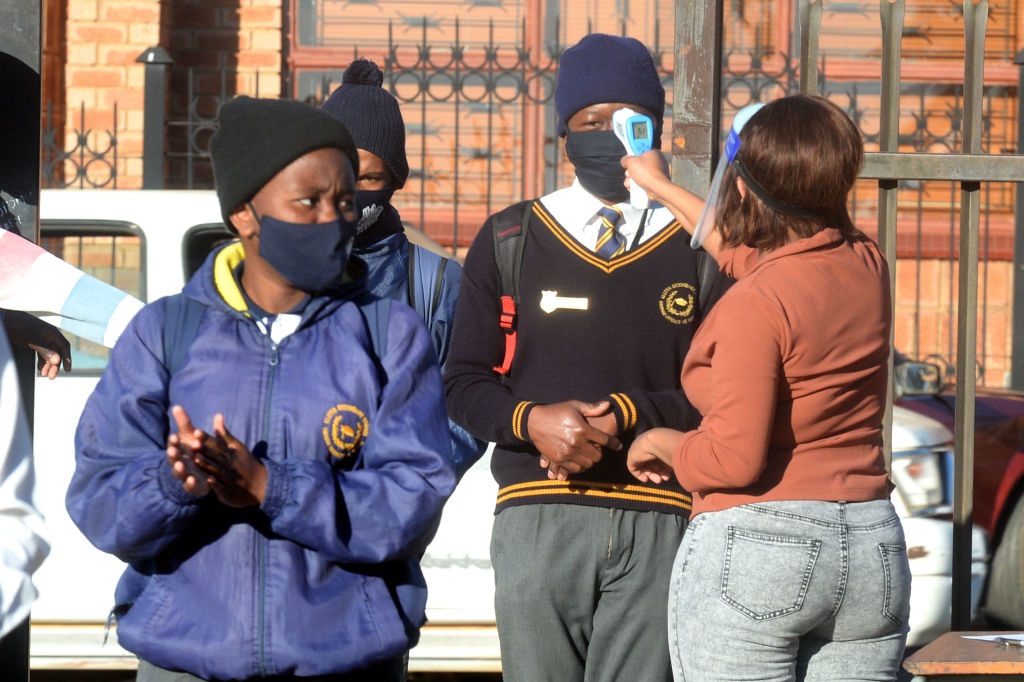Education minister Angie Motshekga said that inland schools are expected to open on 12 January 2022 and coastal schools on 19 January 2022. Motshekga emphasised that these dates would be depe
25-10-2021
- The Covid-19 pandemic has caused a massive loss in learning time at schools, especially in poorer communities.
- Between 50% and 75% of learning was lost in 2020. At least 50% has been lost so far in 2021.
- Basic Education Minister Angie Motshekga said the disruption will have problematic consequences and should be tackled urgently by teachers, parents and communities.
The impact of Covid-19 resulted in 50% to 75% of school learning time being lost in 2020, said Basic Education Minister Angie Motshekga.
On Sunday, Motshekga gave an update on the impact of the pandemic on school learning.
"Thankfully, we have now begun to measure Covid-19-related learning losses in our local contexts by comparing how much children learnt in 2020 with how much they learned in an average school year before that. These measures indicate that between 50% and 75% of a typical year's worth of learning was lost during 2020," Motshekga said.
Pupils in poorer communities were the hardest hit, as poor children have less access to adequate remote learning opportunities and home support, compared to children in middle-class families.
Motshekga said data from the National Income Dynamics Study – Coronavirus Rapid Mobile Survey (NIDS-CRAM), a broad survey on the impact of Covid-19 in South Africa, found that more school-aged children were not attending school than usual.
"It is not yet clear whether this is temporary non-attendance, or may become permanent (dropouts) from schooling. In the long run, the learning losses in primary school may lead to an increase in dropouts when these children reach the Further Education and Training (FET) band at Grades 10, 11 and 12," Motshekga said.
"What we know at this point is that learners with weak learning foundations begin to drop out in more significant numbers as they progress through the grades. This creates an urgent need to recover learning that has been lost," she said.
Presenting his findings on lost learning time, socio-economic researcher at the University of Stellenbosch Professor Martin Gustafsson said so far 50% of learning has been lost in 2021.
By 1 January 2021, there were 25 000 fewer pupils aged four to six than there should have been, he said.
He said:
First time intake into grades R and 1 has dropped. Children aged seven to 14 are now at 10 000 lower than it should be. This points to the dropping out of compulsory-aged children. Even with the best catch-up programmes, it is now considered near impossible to fully recover from the learning losses
Motshekga said the delay in the start of the academic year and the extended absence of pupils from school were bound to have a long-lasting negative impact on society, and not only on the education sector.
To tackle lost learning time, Motshekga said the prevention of further disruptions to school time should be prioritised.

"If we do not mitigate it now, the consequences are dire. We have to work together to protect our children from further delays. We monitor learner time losses because we know that the longer children stay away from school, the harder it is to bring them back into the class. They've become alienated from the education system. It is very disruptive.
"The second step is to introduce measures to catch up on the time as well as the teaching and learning that was lost through the Covid-19 pandemic, in particular. We urge parents and all of our stakeholders in the sector to support our efforts to ensure that education continues without any further delays or disruptions," Motshekga said.
On the planned integration of early child learning centres into the basic education system from the social development department, Motshekga said a national census was launched on Thursday to gather as much information about early child learning centres as possible.
"A key barrier to effective planning in the ECD (early childhood development) sector has been the lack of accurate data on ECD programmes and data systems. There is limited accurate information on the ECD ecosystem as a whole at present. Information gathered from the census will be used to integrate ECD into the DBE's (Department of Basic Education's) Education Management Information System (EMIS), and thus expand the provision of education support programmes, as well as play-based learning," she said.
She urged early childhood learning practitioners at both registered and unregistered centres to cooperate with census field workers. The census started this month and will continue until December.
Regarding the October school holidays, Motshekga said the Council of Education Ministers (CEM) met on Friday and considered input from stakeholders. Teacher unions and school governing bodies were up in arms about the scrapping of the holiday to make up for lost learning time.
The CEM decided not to meddle with the October holidays, said Motshekga.
"CEM further recommended that the lost number of school days should be recovered at district and school level, but with reasonableness," she added.










